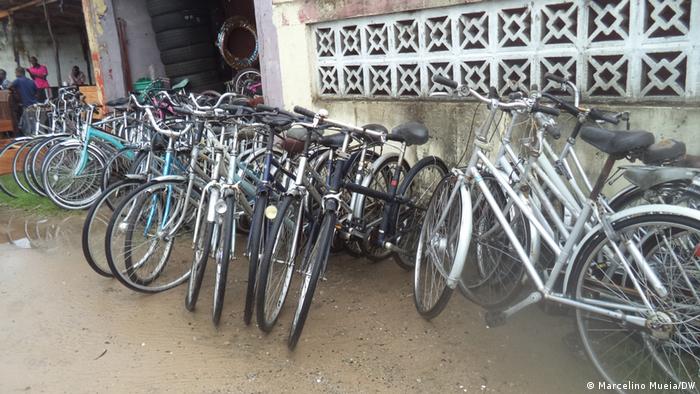Mozambique allocates land to Zambia to develop dry port at Nacala
Mozambique: Bicycle prices soar in Quelimane

- Bicycles, the main means of transport in the Mozambican province of Zambezia, are increasingly expensive due to the demand generated by increases in the price of public transport.
- Consumers complain of soaring prices.
Anyone from Quelimane knows how to ride a bike. A visitor who has not ridden a bicycle-taxi, has not really arrived in Quelimane – that’s what they say in the provincial capital of Zambezia.
Four out of five families in urban neighbourhoods have at least one bicycle, which travels an average of 25 kilometres a day. Many are used as taxis to earn some money.
Recently, however, it has not been easy to acquire a new or even second-hand bike. The demand for bicycles has increased since the recent hike in conventional transport tariffs, and bicycle sellers have raised their prices.
For example, a second-hand one-person bicycle which previously cost about 5,000 meticais now costs almost 10,000 meticais (about €142), or even more depending on the quality.
New bikes are the most popular. Even though taxi operators consider them less resilient, they come with luggage compartments – handy for taxi and cargo transport applications. These currently cost about €85.

Prices going up
The higher prices are criticised by many citizens who depend on bicycles, including for work.
“Sellers have raised [bicycle] prices, so we must raise prices for the provision of bicycle taxi service to earn anything,” Hibraim Alfândega explains.
Francisco Espelho, 58, says he has been supporting his family by means of his bicycle for several years now. “Life is difficult, day after day,” he tells DW. “Bikes are now going up in price.”
“It was in 2007 that I started first carrying flour from the mill to the market. The same year, I got my bicycle taxi driver’s licence and since then have ‘made taxi’ with my bicycle,” he recalls.
Bicycle sellers in Quelimane declined to comment on the issue at this time.
More than 10,000 bicycles in circulation
Because of the increasing number of bicycles, authorities in Quelimane decided to institutionalise cycling and, in 2013, created ATAMOZ, the Zambezia Taxi Drivers Association.
The association’s president, António Bernardino, says that there are more and more cyclists, and new members registering all the time, despite the price of bicycles.
“We already have 5,500 associated taxi drivers – the number tends to grow because of unemployment. Young people come to Quelimane from all over Zambezia province” to work as [bicycle] taxi drivers, he says.
The best-selling bicycles in Quelimane are imported from India, China and Italy.
It is estimated that more than 10,000 bicycles circulate on the roads of the provincial capital every day – more than half of them registered with the taxi drivers association.
Source: Deutsche Welle












Leave a Reply
Be the First to Comment!
You must be logged in to post a comment.
You must be logged in to post a comment.